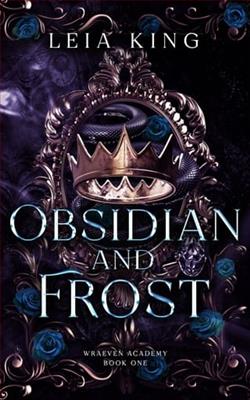Page 60 of Twisted Addiction
Dmitri obeyed — but his eyes never left mine.
There was a storm behind them: fury, obsession, hunger, calculation. He watched me like a man cataloguing a new wound to remember later.
The basilica hummed with stunned silence.
The statue of his mother presided above us, marble and unblinking, as our private apocalypse played out beneath her cold gaze.
Giovanni’s voice broke through the fog in a whisper that was both apology and command. “Penelope—please. Please put the gun down.”
My hands trembled. The barrel felt impossibly heavy.
Every instinct told me to run, to escape, to throw the weapon away and never look back. Another part of me — the part that had been erased and rebuilt by fear and small, stubborn rebellion — kept the gun trained on him.
Dmitri let out a quiet, humorless laugh. “You did what you had to do,” he said, not unkindly. “You shot me. Congratulations. You finally made a choice.”
“Don’t flatter yourself,” I snapped. “I don’t want your congratulations.”
He blinked once, slow, as if cataloguing the moment. Then his mouth curved, not into a smile but into the promise of a storm. “I know,” he murmured. “That’s why I’ll make you regret it.”
The doctor’s hands were no longer gentle but necessary. Giovanni swallowed and looked away. I remained where I was — gun aimed, breath shallow, the weight of everything pressing down like a stone.
Chapter 15
PENELOPE
Fear wrapped around my ribs and shoved me forward.
I ripped at the basilica’s massive oak doors; the ancient hinges protested with a keening groan as I forced my way out.
The gun felt absurdly heavy in my hand, its weight a cold, humming reminder of what I’d done inside the Basilica—shooting Dmitri, drawing his blood in the sacred hall of the Basilica di Sant’Abbondio.
The consequences would be catastrophic, I knew it, and the fear drove me to seek escape, any path that could shield me from his wrath.
I stumbled out into the night, lungs burning, the air thick with the lake’s damp breath and the city’s sleeping stone.
The street was empty except for warped pools of lamplight and the distant hush of water against pier.
I forced myself to move faster, but my legs felt wooden—each step a small betrayal. The basilica’s marble receded behind me like a guilty memory.
Blood—his blood—dried dark on the cuff of my sleeve and smudged across my palm where the papers had slipped. Every smear was a brand, a proof that nothing could be undone.
I scanned the empty street like a hunted thing, searching for any shape that could be a savior: a cab idling with its driver asleep, an elder with the kind of influence that still meantsomething in Lake Como, a uniformed patrol that might break the cathedral’s silence.
Nothing.
Only pools of streetlight, the lake’s distant hush, and the soft clack of my heels on wet stone as I tried to run without making noise.
If Dmitri lived, he would not forgive. If he died, his reckoning would be worse. Either future squeezed the air from me.
Hands trembling, I wiped at the blood on my sleeve with the heel of my palm—not to clean it, but to erase the proof.
The fabric came away darker; the stain only spread.
My fingers left red crescents on the oak as I leaned against a lamp post to steady myself. My pulse hammered at my throat so hard I could taste it.
“Whale!” a voice called from the shadows, sharp and slick with amusement.
I spun.















